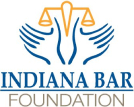As we go through our lives, the ability to create new memories and reminisce on old ones is a cherished ability that is often taken for granted; however, for those unfortunate people who have suffered from traumatic head injuries, memory problems and loss can be a significant issue that dramatically affects their life. Depending on the type of injury that a person sustains, the type of memory loss that they suffer from can also differ widely. However, one of the most common consequences of a traumatic brain injury related to memory loss is amnesia.
This type of memory loss comes in two major forms –anterior grade and retrograde amnesia. For those who are victims of anterior grade amnesia, forming memories after the injury is difficult or impossible. Many times, a victim of a traumatic brain injury will not remember the hours, days, or weeks immediately following the accident that caused their injury. Fortunately, however, a good number of victims regain their brain function and are able to start forming new memories as they did before. The other form of amnesia – retrograde amnesia – results in people being unable to remember events that happened prior to their accident. As with anterior grade amnesia, a person may be able to regain these memories as their brain heals. However, this is largely dependent on the severity of their brain injury.
Regardless of whatever form of amnesia a person suffers from, the repercussions and recovery can be difficult to manage. As such, finding support wherever possible is often essential to the recovery process.
Author Bio
Carlos is an experienced blogger who is interested in expressing the severity of brain injuries and how it’s important to seek the services of a brain injury lawyer after losing cognitive functions as a result of another person’s actions.










